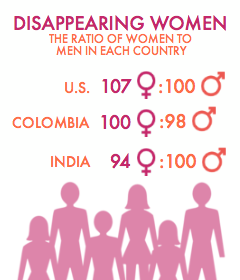
March 8, 2013 | Education, Law and Justice, Politics and Leadership
“Where Are the Women?”
Too often Afghan women’s needs are ignored, says one outspoken legislator.
Shinkai Karokhail is a member of Afghanistan's National Parliament.
Here’s some unvarnished, straight-up advice to all the international groups offering aid to Afghanistan: "Ask, where are the women at the table?" demands Shinkai Karokhail, a fearless member of the Afghan parliament. "Ask, who is speaking for the women?"
Without the full participation of women in all levels of Afghan government and society, the country will never progress, says Karokhail, who spoke at a March 6 event in New York City co-hosted by nonprofit ActionAid and the Women in the World Foundation. She was joined in the discussion by Lynne Feathersone, a champion of Afghan women who is a member of Britain's parliament and Minister of State for International Development.
Want peace in the region? "Women need to be part of all negotiations and peace talks," Karokhail said. "We cannot attain or maintain peace otherwise."
Want to end the abuse of women? Bring in more women lawyers, judges, advocates, and those who are sympathetic to women's plight. "We finally have a family rescue unit in Afghanistan," said Karokhail. "Believe me, it is nothing…There is only one family court. Sixty percent of male judges graduated only from religious schools. They are closed and dark-minded guys…not professionals."
Her prescription for the country starts with a recognition that women’s issues are being swept under the rug. The notion of "security"—that is, insurgent threats to the country—"is a good excuse for ignoring women," Karokhail said. "Sixty percent of Afghanistan’s budget goes to security."
"We need to focus on girls' economic independence and monitor how much money is being put towards women’s projects," she added, challenging foreign governments to ask how their aid money is being spent. Only ten percent of funding, she said, goes for women’s programs. Likewise there's a need for secondary education for girls—once past elementary school, girls' enrollment drops off precipitously—and for electing and appointing qualified women to office, not just those who are placeholders for the Taliban.
"Afghan women continue to face significant challenges," observed Featherstone, who noted that Britain will continue to help those women reach the goals outlined by Karokhail.
The best way to ensure reaching those goals, said Karokhail, is keeping "the Afghan government accountable on the promises they make."